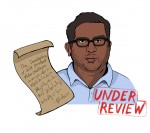The ongoing graduate student government drama is the gift that keeps on giving.
The controversy whirling around Graduate Student Association President Milan Chatterjee gained its second wind last week as the GSA Forum, the governing assembly of the GSA, launched an investigation into his actions. This comes after Chatterjee’s emails in October revealed he tried to withhold funding from the Diversity Caucus Town Hall if it had any connection with groups that support what he called the “Divest from Israel” movement. An investigative subcommittee will now collect facts and make a recommendation about the proper response to Chatterjee’s original actions as well as his actions since then.
The fact that the forum launched an investigation, however, does not guarantee that it will be handled properly. If the graduate student government’s recent actions are any indication, there is little reason to believe the process will go smoothly.
GSA is quickly earning a reputation for being untrustworthy, a major flaw for an elected governing body. By being opaque with its dealings, GSA is allowing itself to escape accountability and thus widening the gap between itself and the graduate student body. Perhaps most concerning is that no one on the council spoke out against Chatterjee until much later, thus enabling his actions.
When council members create policies that discriminate against students based on their viewpoints, especially when these policies are created behind closed doors, they compromise the relationship they have with constituents.
Now is the perfect opportunity for GSA to redeem itself. Reversing course and creating a detailed report on the investigation can rebuild its effectiveness and legitimacy as a governing body. It’s imperative that the subcommittee also ensure complete transparency in the process. It needs to make all information relevant to the investigation, emails, meeting minutes and all, public as soon as possible.
The stakes may not seem very high, since low voter turnout in GSA elections shows that few graduate students have any real interest in the council’s affairs. Regardless, GSA members should not be free from scrutiny when they act irresponsibly.
Even if Chatterjee gets his just desserts near the end of his inauspicious term as president, the GSA sideshow could at least serve as a learning moment. Justice delayed is not necessarily justice denied in this case if the investigation could set the precedent for future councils should a similar situation arise somewhere down the line.
At its latest meeting, the GSA Forum requested that Chatterjee stop using the council’s listserve, which he may have been using to harass the GSA Forum with emails that included a blog post accusing Students for Justice in Palestine of being an “anti-Semitic group.” He is also under investigation for not taking students’ legitimate concerns about the original funding issue seriously. This relationship between the GSA leadership and the graduate student body is unacceptable and needs to repaired. Since this controversy is the only newsworthy thing to come out of GSA this year, the distrust Chatterjee has sowed, or at least its memory, will certainly outlast his term.
GSA seemed to right its wrongs with the passage of a constitutional amendment and resolution stating that it would no longer practice viewpoint discrimination when it comes to funding. But that alone simply isn’t enough.
Should the investigation proceed transparently, GSA can successfully move beyond words and resolutions and take meaningful action by putting its promise to improve into practice. Accountability is key, and there cannot be any accountability without accessible information.
The outcome of this investigation could lead to something as severe as the president’s impeachment, but the road toward the final decision needs to be paved with full disclosure and publicly available evidence. Anything short of that will leave us back where the whole issue started: in the dark.
